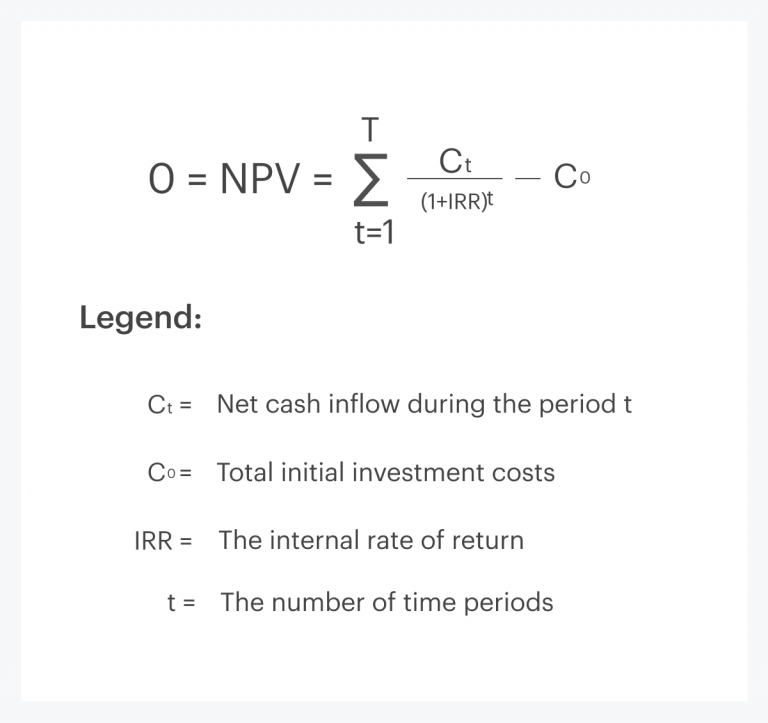When you’re making long-term investments in private companies that are likely not profitable yet, tracking performance can be challenging.
To help estimate their profitability, many investors regularly look at their IRR.
What is IRR?
IRR stands for internal rate of return. It shows the annualized percent return an investor’s portfolio company or fund has earned (or expects to earn).
Deal IRR, also known as gross IRR, measures the return from a fund’s portfolio. This is a common way of determining how successful the general partners’ (GPs’) investments are to date.
Net IRR, which includes management fees and carried interest, measures the value of the investment into a fund from the perspective of limited partners (LPs).
Why is benchmarking IRR important?
Benchmarking IRR helps funds measure the effectiveness of their deals and their performance against other funds. Unlike other forms of measurement, like return on investment (ROI) and net present value (NPV), IRR allows you to make apples-to-apples comparisons across asset classes and public market indexes—no matter the time frame.
IRR is also an important metric Limited Partners look at when you’re raising money for your fund—if you consistently show excellent returns on your investments, it may be easier to attract investors.
What’s considered "good" can vary based on the type of investment you’re making. In general, many early-stage investors target a 30% net IRR, while many later-stage investors target a net IRR of around 20% (both over an average period of eight years). However, some investors aim higher—Brightstone VC employs a strict 50% IRR benchmark for any given portfolio, for example.
To begin benchmarking your IRR, download our free IRR calculator. After you input information about each of your portfolio companies, it calculates your total portfolio-level IRR.

Download the IRR calculator
How do you calculate IRR?
The formula to calculate IRR looks like this:
You can calculate IRR by setting NPV to zero and solving for the discount rate. However, there’s no point in calculating your IRR manually—most people use a spreadsheet-based calculator instead.
Is there an easier way to calculate IRR?
While calculators are more efficient than calculating your IRR manually, they still leave room for errors. Some of the most common mistakes people make include entering the dates and amounts wrong.
With Carta’s fund admin service, we calculate everything for you and you can view real-time deal IRR anytime you want. Typical fund administration providers only give you quarterly reports, but with Carta fund admin, we sync our general ledger daily and are the only firm that can offer real-time IRR.
Learn more about Carta for Venture Capital, or talk to an expert about Carta fund admin today.
DISCLOSURE: This communication is on behalf of Carta Investor Services, Inc. ("Carta"). This communication is for informational purposes only, and contains general information only. Carta is not, by means of this communication, rendering accounting, business, financial, investment, legal, tax, or other professional advice or services. This communication is not a substitute for such professional advice or services nor should it be used as a basis for any decision or action that may affect your business or interests. Before making any decision or taking any action that may affect your business or interests, you should consult a qualified professional advisor. This communication is not intended as a recommendation, offer or solicitation for the purchase or sale of any security. Carta does not assume any liability for reliance on the information provided herein.

Stephen Prihoda
Subscribe
Stay up to date with monthly blog highlights


